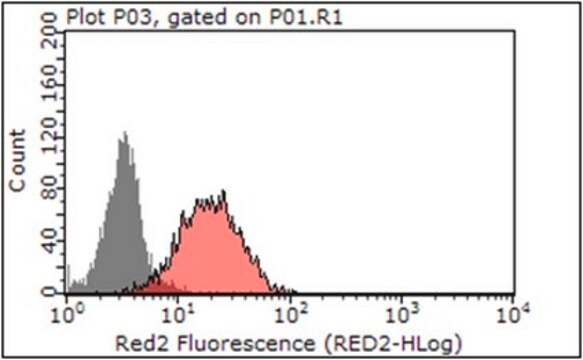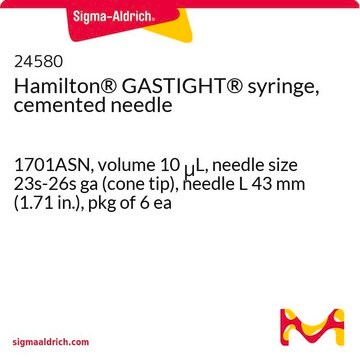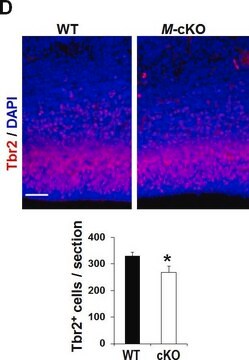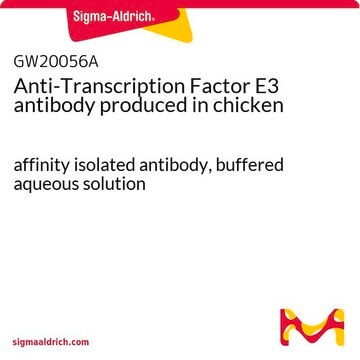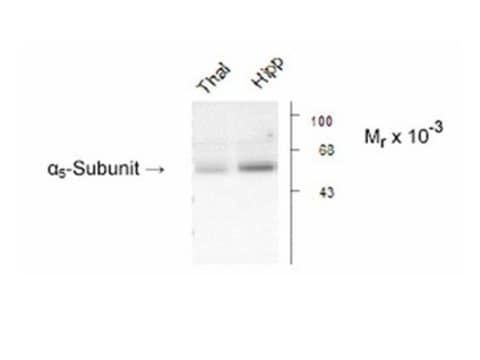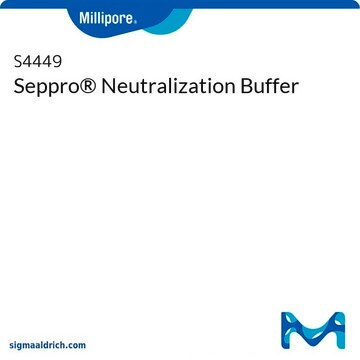ABC118
Anti-phospho Beclin Antibody (Thr119)
from rabbit, purified by affinity chromatography
Synonym(s):
Beclin-1, Coiled-coil myosin-like BCL2-interacting protein, Protein GT197
About This Item
Recommended Products
biological source
rabbit
Quality Level
antibody form
affinity isolated antibody
antibody product type
primary antibodies
clone
polyclonal
purified by
affinity chromatography
species reactivity
human
species reactivity (predicted by homology)
rat (based on 100% sequence homology), Xenopus (based on 100% sequence homology), bovine (based on 100% sequence homology), chicken (based on 100% sequence homology), mouse (based on 100% sequence homology), porcine (based on 100% sequence homology)
technique(s)
inhibition assay: suitable (peptide)
western blot: suitable
NCBI accession no.
UniProt accession no.
shipped in
wet ice
target post-translational modification
phosphorylation (pThr119)
Gene Information
human ... BECN1(8678)
General description
Specificity
Immunogen
Application
Apoptosis & Cancer
Apoptosis - Additional
Quality
Western Blotting Analysis: 5 µg/mL of this antibody detected 10 µg of human prostate tumor tissue lysate.
Target description
Physical form
Storage and Stability
Analysis Note
Human prostate tumor tissue lysate.
Other Notes
Disclaimer
Not finding the right product?
Try our Product Selector Tool.
Storage Class Code
12 - Non Combustible Liquids
WGK
WGK 1
Flash Point(F)
Not applicable
Flash Point(C)
Not applicable
Certificates of Analysis (COA)
Search for Certificates of Analysis (COA) by entering the products Lot/Batch Number. Lot and Batch Numbers can be found on a product’s label following the words ‘Lot’ or ‘Batch’.
Already Own This Product?
Find documentation for the products that you have recently purchased in the Document Library.
Articles
Autophagy is a regulated process involved in cell growth, development, and recycling of cytoplasmic components in cells.
Autophagy is a regulated process involved in cell growth, development, and recycling of cytoplasmic components in cells.
Autophagy is a regulated process involved in cell growth, development, and recycling of cytoplasmic components in cells.
Autophagy is a regulated process involved in cell growth, development, and recycling of cytoplasmic components in cells.
Our team of scientists has experience in all areas of research including Life Science, Material Science, Chemical Synthesis, Chromatography, Analytical and many others.
Contact Technical Service